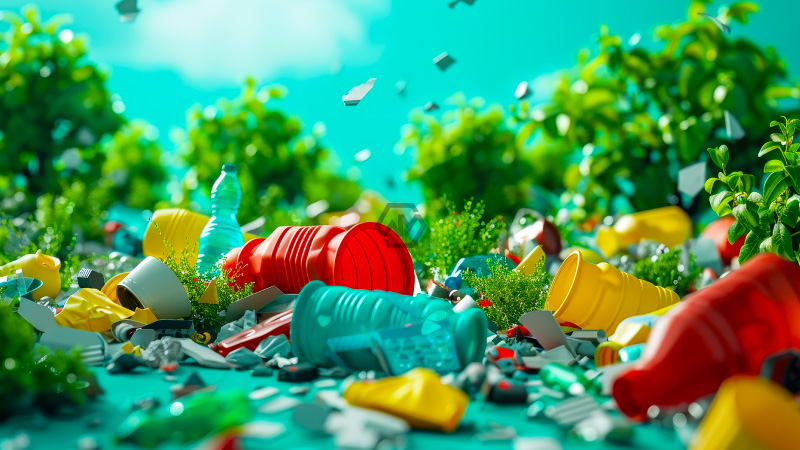- Agricultural plastics are key to modern farming but contribute to microplastic pollution.
- Farmers face challenges in balancing productivity with sustainability.
- Experts urge the development of eco-friendly alternatives to plastic mulch and other synthetic materials.
Plasticulture, the integration of plastic materials in agriculture, has revolutionized modern farming, improving yields and reducing labor costs.
However, its widespread use, particularly in mulch films, irrigation systems, and polyhouses, is contributing to the pollution of soil with micro and nanoplastics.
Balancing Agriculture’s Growth with Plastic Pollution Control
The dilemma for farmers is stark: plasticulture offers clear economic benefits by boosting productivity, yet it also leads to significant plastic waste. In India, where plastic mulch and drip irrigation are common, farmers like Sridhar Jayagouda depend on these technologies to maintain their livelihoods. However, experts argue that alternative, sustainable solutions are urgently needed to protect the environment and ensure the long-term viability of agriculture.
However, the environmental impact of agricultural plastics cannot be ignored. The breakdown of these materials into micro and nanoplastics contributes to soil degradation and poses risks to both ecosystems and human health. Unlike other forms of waste, these tiny plastic particles are difficult to remove and can persist in the environment for years, contaminating water and food sources.
Farmers, especially those in regions like Karnataka, find themselves caught in a difficult situation. The economic benefits of using plastic mulch and other plastic-based technologies are undeniable, but they come at the cost of long-term sustainability. The lack of affordable, viable alternatives means that many farmers continue to rely on plasticulture, despite its environmental drawbacks.
There is a growing consensus among experts that the future of agriculture must be more sustainable. Researchers are advocating for the development of biodegradable materials and other eco-friendly innovations to replace traditional agricultural plastics. These alternatives could help reduce pollution and protect the environment while still allowing farmers to maintain high productivity levels.
To secure the future of agriculture, a shift towards sustainable practices is crucial. This includes phasing out synthetic plastics in favor of biodegradable alternatives that balance productivity with environmental protection.
“What other alternatives do farmers have? Plastic mulching is economical, it suppresses weed growth and reduces cost of labor significantly. Our production has improved.”



